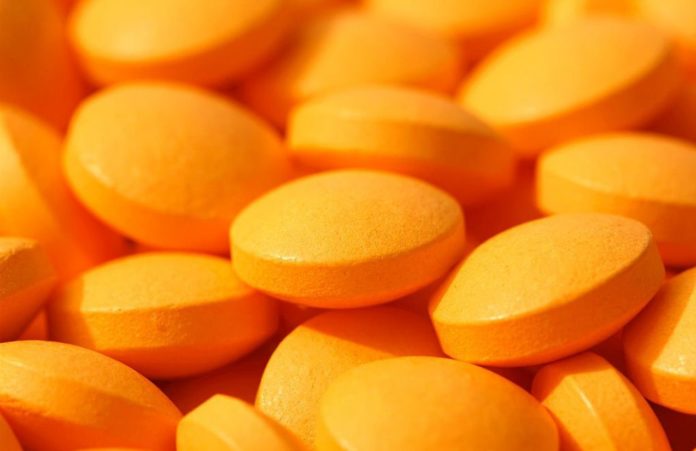Every year, millions of people are affected by post-traumatic stress disorder (PTSD), the majority of whom are survivors or witnesses of scary or shocking events such as conflicts, assaults, or disasters.
New treatments are desperately needed as current treatments do not work for everyone.
Today, researchers published the findings and follow-up data from a phase 3 clinical trial combining a psychedelic drug, 3,4-methylenedioxymethamphetamine (MDMA), also known as “ecstasy” or “molly,” with psychotherapy for the treatment of PTSD.
Their preliminary findings suggest that the therapy is effective even in difficult-to-treat individuals, such as those suffering from drug or alcohol addiction.
Recently, interest and research in the use of psychedelic substances, such as mescaline, psilocin, and MDMA, for the treatment of psychiatric problems have risen dramatically.
However, Jennifer Mitchell, Ph.D., the project’s primary scientist, who is presenting the data at ACS Spring 2022 conference, notes that the idea that such substances could improve psychotherapy isn’t new.
The first time some psychiatrists used MDMA to help people with psychotherapy was in the 1970s, even though there were no formal clinical trials or approval from the FDA at the time.
“MDMA is really interesting because it’s an empathogen,” according to Mitchell. “It causes the release of oxytocin in the brain, which creates feelings of trust and closeness that can really help in a therapeutic setting.”
Furthermore, animal studies show that MDMA can help “reconsolidate,” or process, fear memories in the amygdala, a part of the brain. Despite the substance’s tiny psychiatric following, its increase in popularity as a street drug — which was accompanied by tales of overdoses and deaths — persuaded the FDA to deem MDMA illegal in the United States in 1985.
Mitchell and colleagues wondered if MDMA could improve the efficacy of psychotherapy in the treatment of post-traumatic stress disorder (PTSD), a debilitating condition marked by forgetfulness, flashbacks, and nightmares following a traumatic experience. Depression, anxiety, substance abuse disorders, and suicide are all more common in those with PTSD.
According to Mitchell, the first-line treatment for the illness, selective serotonin reuptake inhibitors (SSRIs), are helpful in only around half of individuals. Many persons with PTSD either do not respond to psychotherapy or stop attending sessions.
So, the group enrolled 90 individuals with severe PTSD in the first phase 3, randomized, double-blind, placebo-controlled study using MDMA-assisted therapy for the treatment of this disease. Researchers had already discovered the best oral dosage of MDMA, which comprised of a full dose followed by a half dose an hour later, in phase 2 experiments. After the half dose, the patients in the phase 3 trial had an 8-hour therapy session. In addition to weekly counseling, this process was performed twice, each time a month apart.
Two months following the final session, around two-thirds of individuals who got MDMA-assisted therapy satisfied the diagnostic criteria for PTSD, compared to one-third of those who received placebo plus therapy. MDMA has little side effects, such as clenching of the jaw and nausea, and no evidence of addiction.
“The effect size for MDMA-assisted therapy is better than that for the SSRIs that have been investigated, suggesting that MDMA is a far better therapeutic for PTSD,” Mitchell added.
The team is presently recruiting patients for a second phase 3 trial, and if all goes well, the FDA might authorize MDMA-assisted therapy for PTSD as early as 2023. The researchers have recently finished a trial to see if MDMA-assisted therapy is as beneficial as traditional PTSD treatment in specific populations that are resistant to it, such as individuals with drug or alcohol use disorders.
“It definitely appears to be equally effective in people who are usually considered treatment resistant, so we’re very excited to think that MDMA-assisted therapy is going to be an effective therapeutic in that hard-to-reach population,” Mitchell said.
The researchers are currently evaluating long-term data from the phase 3 experiment to see how long the treatment might endure.
“People in the phase 2 trial were better for years,” according to Mitchell. “They seemed to have a new perspective on life and engaged more. As their social skill set built up, they were happier over time.”
The patients in the phase 3 experiment, on the other hand, experienced more severe PTSD symptoms, thus their treatment might not be as long-lasting.
Despite these encouraging findings, Mitchell cautions that persons with PTSD should not use MDMA to self-medicate.
“If MDMA is decriminalized, that doesn’t mean it’s safe,” she added. “It can be a very powerful tool, but it needs to have the right dose in the right context with the right support system.”
Image Credit: Getty
You were reading: ‘Ecstasy’, combined with intense therapy, improves PTSD symptoms
